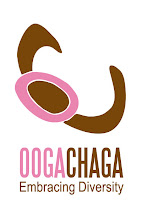Two weeks prior to United Nations High Level Meeting on HIV in New York, the G8 countries; Canada, France, Germany, Italy, Japan, Russia, United Kingdom, and United States, are meeting in Deauville, France on May 26-27. GNP+ acknowledges and commends the considerable contributions made by the G8 countries unilaterally and jointly, to increase access to HIV treatment, prevention, care and support. They are amongst the most important contributors to the Global Fund to fight AIDS, TB and Malaria. However, the G8 contributions have been lagging behind, threatening gains made in slowing down the HIV epidemic.
Realizing Universal Access and the effects of treatment on prevention
30 years into the epidemic, there is now evidence showing that early initiation of antiretroviral therapy (ART) not only has increased health benefits for HIV positive people, but also has significant effects on preventing HIV transmission. The HIV Prevention Trials Network (HPTN) 052 study results released in May 2011 confirmed what UNAIDS epidemiological figures were suggesting and the experiences of people living with HIV in sero-different relationships. The study showed a 96% reduction in risk of HIV transmission upon initiating HIV treatment when CD4 cell counts are between 350 - 550.
GNP+ welcomes these findings and urges the G8 to support the WHO in issuing appropriate and timely guidance for country action. It is critical, however, to understand that the public health benefits of treatment on preventing new HIV infections can only be realized where human rights are respected and if programmes are implemented in ways that respect the values and principles of Positive Health, Dignity and Prevention.
Kevin Moody, International Coordinator and CEO of GNP+, states: "While the health and well-being of people living with HIV should be central in the use and promotion of HIV treatment, GNP+ welcomes treatment's preventative benefits. Within the context of limited resources, these benefits should focus the G8 to see treatment as an investment in prevention. Increasing availability of treatment will reduce long-term demand on health services. This has important implications for universal access to treatment because it lowers the long-term cost of treatment rollout and scale-up."
Stigma, discrimination and HIV related human rights violations
Universal access to treatment, prevention, care and support cannot be achieved in an environment of stigma and marginalisation, nor where programmes are beset by potential human rights violations – such as forced or uninformed testing or coerced initiation of ART primarily for the benefit of public health rather than the health and well-being of the individual.
Networks of people living with HIV in the past few years have been collecting evidence on HIV related human rights violations worldwide. For example:
- During recent consultations on the prevention of mother to child transmission, GNP+ has documented instances in Indonesia and Uganda where women living with HIV have undergone forced sterilization.
- In every implementation of the GNP+ Human Rights Count! project so far in Africa, Asia and North America evidence showed widespread mistreatment of people living with HIV and denial of services in healthcare settings.
- The PLHIV Stigma Index in Estonia, Poland, Moldova, Turkey, and Ukraine shows that the fear for stigma and discrimination keeps people from testing as well as initiating treatment once having tested positive.
- Operational research on the sexual and reproductive health and rights experiences of people living with HIV in Nigeria showed an increase of gender based violence following disclosure of HIV positive status by women.
- Increase efforts to achieve universal access to treatment, prevention, care and support;
- Continue funding the Global Fund to fight AIDS, TB and Malaria.
- Support with policies and resources the development and implementation of guidelines for treatment and prevention;
- Leadership in pushing pharmaceutical companies to drop prices for HIV treatment;
- Refrain from Free Trade Agreements limiting the flexibilities of TRIPS for the production and distribution of generic HIV treatment;
- Fulfill their commitment to counter any form of stigma, discrimination, and human rights violations and promote the rights of persons with disabilities and the elimination of travel restrictions on people living with HIV;
- Commit to country level HIV responses that are evidence based and transparent and accountable to those most affected by HIV;
- Recognize and respond to the needs of key affected populations, in particular men who have sex with men, drug users, sex workers, and transgender people, and including young people and women.
More information about this news release: Please contact GNP+ (Martin Stolk, Communications officer, by email mstolk@gnpplus.net, or phone +31-20-423 4114)
Additional information
For GNP+'s advocacy on Positive Health, Dignity and Prevention and on New Prevention Technologies, please see: www.gnpplus.net/en/programmes/positive-health-dignity-and-prevention
Evidence gathered by networks of people living with HIV:
- Human Rights Count! www.gnpplus.net/en/programmes/human-rights/human-rights-count
- The PLHIV Stigma Index www.gnpplus.net/en/programmes/human-rights/plhiv-stigma-index
- Sexual and reproductive health and rights www.gnpplus.net/en/programmes/sexual-and-reproductive-health-and-human-rights/research
- GIPA Report Card www.gnpplus.net/en/programmes/empowerment/gipa-report-card
- Consultations with people living with HIV on different topics www.gnpplus.net/en/programmes/empowerment/constituency-consultations





No comments:
Post a Comment